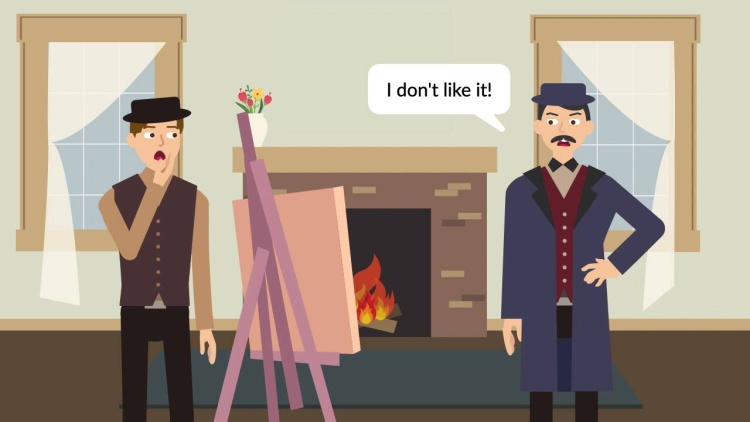Gibson v. Cranage
Michigan Supreme Court
39 Mich. 49 (1878)

- Written by Christine Hilgeman, JD
Facts
Gibson (plaintiff) solicited Cranage (defendant) to allow him to create an enlarged portrait of Cranage’s deceased daughter. Gibson promised Cranage that he would have no obligation to pay for the portrait unless he was completely satisfied with the portrait. Gibson urged Cranage to proceed with the arrangement reaffirming that there would be no risk, because if Cranage did not like the portrait, he would not have to pay for it. Once the portrait was finished, it was shown to Cranage, who did not like it and refused to accept it. Although Gibson attempted to modify it to satisfy Cranage, the next day Gibson received a letter from Cranage stating that he was dissatisfied with the portrait, that he would not take it or a similar portrait, and that he was canceling the order. Once Gibson received the modified portrait from the artist, he again approached Cranage to have him examine it. Cranage refused to look at or examine this portrait. Gibson commenced an action against Cranage to recover the contract price. At trial, Cranage again stated his dissatisfaction with the portrait. Gibson, alleging error in the lower court, appealed to the Michigan Supreme Court.
Rule of Law
Issue
Holding and Reasoning (Marston, J.)
What to do next…
Here's why 907,000 law students have relied on our case briefs:
- Written by law professors and practitioners, not other law students. 47,100 briefs, keyed to 996 casebooks. Top-notch customer support.
- The right amount of information, includes the facts, issues, rule of law, holding and reasoning, and any concurrences and dissents.
- Access in your classes, works on your mobile and tablet. Massive library of related video lessons and high quality multiple-choice questions.
- Easy to use, uniform format for every case brief. Written in plain English, not in legalese. Our briefs summarize and simplify; they don’t just repeat the court’s language.





